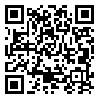

Volume 10, Issue 6 (1-2013)
RBS 2013, 10(6): 421-430 |
Back to browse issues page
Download citation:
BibTeX | RIS | EndNote | Medlars | ProCite | Reference Manager | RefWorks
Send citation to:



BibTeX | RIS | EndNote | Medlars | ProCite | Reference Manager | RefWorks
Send citation to:
يوسفي ع, غرضي ف, گردانشکن م. The Effect of teaching Problem Solving on Self-Efficacy and Perceived Self-Efficacy in adolescents. RBS 2013; 10 (6) :421-430
URL: http://rbs.mui.ac.ir/article-1-275-en.html
URL: http://rbs.mui.ac.ir/article-1-275-en.html
1- کارشناس ارشد، گروه روانشناسي، دانشگاه آزاد اسلامي واحد خوراسگان، اصفهان، ايران
2- کارشناس ارشد، برنامهريزي آموزشي، دانشگاه آزاد اسلامي واحد خوراسگان، اصفهان، ايران
2- کارشناس ارشد، برنامهريزي آموزشي، دانشگاه آزاد اسلامي واحد خوراسگان، اصفهان، ايران
Abstract: (1817 Views)
Aim and Background: This study seeks the effect of teaching problem solving on self-efficacy and perceived self-efficacy in adolescents. Methods and Materials: In this quasi-experimental study using three group with pre-test and post-test, on hundred sixty students were randomly selected via multi-stage sampling, and were divided into 64 students of experimental group and 62 students of placebo group and 34 students in the control group. Problem solving was taught to the experimental group in 15 sessions and the placebo group was trained irrelatively in 15 sessions and control group was kept in waiting list. Data were collected through Jeruselem and Schwarzer’s General Self-efficacy Inventory (1995), Self-efficacy in Relationship Inventory of Wheeler and Ladd, (1982) and Perceived Self-efficacy Inventory of Ollendick, (1986). Data was analyzed by SPSS software using descriptive statistics indices (mean and standard deviation) and inferential statistics (Covariance analysis). Results: the mean score of self-efficacy and perceived self-efficacy in the experimental group, demonstrated the increase in post-test compared to that of pre-test. Conclusion: Teaching problem solving was effective on general self-efficacy and perceived self-efficacy and self-efficacy in relation with peers.
| Rights and permissions | |
 |
This work is licensed under a Creative Commons Attribution-NonCommercial 4.0 International License. |



